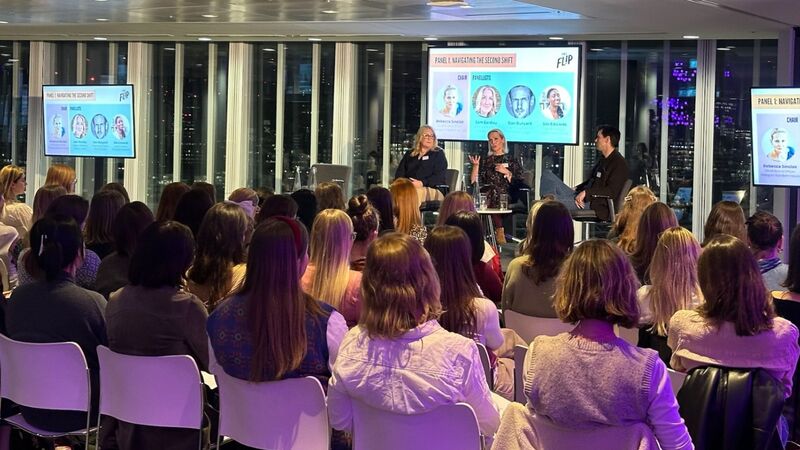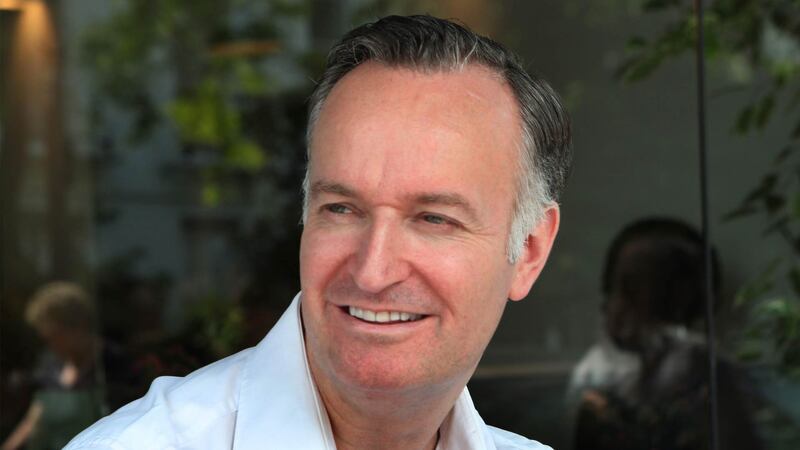Why I left corporate publishing
Here’s what I learnt from my experience with mental health issues in the industry – and some advice for employers, too.
A year and a half ago I won Editor of the Year at the British Book Awards. At the same time, I was signed off with the worst episode of depression in my life. In February this year I decided that I could not go back. The question of why has dogged my last year, and is one I think worth answering in public.
I have had depression on and off since I was a teenager. The low moods seem to come from nowhere, more and more frequently, until they join together and become my whole world, the lens I see everything through. They are accompanied by thoughts of such unremitting negativity that I bore even myself. Then follows a manic quest to try and fix it, but nothing - exercise, wine, meditation, talking to people - can stop the downward slide now. Eventually it feels like being stuck down a well, everyone else outside. I’m trying very hard to get out, but the effort only makes things worse. When it gets really bad I start to think that all there is is the well, that I deserve to be here, that I’m stupid for thinking an outside would exist. I try to resist the urge to bash my brains out on the slimy walls. I don’t always succeed.
After years of different types of treatment and reflection I have concluded that my particular brand of depression is caused by certain traumatising childhood events, my neural structure and my personality type, all interacting with and feeding into each other. The final, instigating factor is context, and that’s what I want to examine today – because my context was the way I was living, which was almost entirely dictated by my career.
I moved to London at 26, a self-conscious Brummie fresh out of a breakup and knowing no one, but making the leap because I had a dream about working with authors I loved. And that’s, miraculously, what I ended up doing. So many amazing moments, from the first Top Ten, to one of my authors winning a Costa award, to publishing one of my literary heroes. So many moments of creative joy and deeply satisfying collaboration. Yet ten years and an award later, I had burnt out. What happened in those years to cause such a dramatic reversal? The answer has many parts, but the core of it is simple: I worked too hard, for too long, in an industry that made me feel it was what I must do in order to fit in, to succeed. When layered on top of my existing mental health challenges, it made for complete implosion.
I am so much better now, embarking on freelance editing life, looking forward to working on the charmed word-filled conjurings that got me into this business in the first place. Feeling happier than I ever have despite being many times poorer. Outside of things enough to look at the industry I left behind with some clarity. So here it is, a year’s worth of thinking, research and talking to people, distilled into some advice for anyone who has a mental health condition, and to those who employ us and work with us. While this is an editor’s view, I believe much of this to be applicable across roles, including the authors we work with.
The most important thing I want you to understand is that stress causes poor mental health. Obvious isn’t it, but I don’t think this fact is truly acknowledged. Stress triggers depressive episodes in those who have the clinical, i.e. long-term condition. It also triggers episodes in those who don’t - the increased level of sick leave over the pandemic is evidence of that. But it doesn’t stop with stress leading to poor mental health. If, like me, you have the clinical condition, the science says that the severity of the episodes tend to get progressively worse the more you have, a vicious cycle of increasing neural degeneration. So reducing stress is not a nice-to-have, it’s life and death for me and others like me. We as an industry need to really face up to what this means. If we want inclusion - and I would argue that people with depression and other mental health conditions are just as full of raw talent as the rest - then we must start taking measures to allow everyone to stay well while doing this job we love.
The most commonly reported causes of workplace stress are the related issues of overworking and pressure to perform. I have seen them in every publishing company I’ve encountered, big and small. Routinely working too many hours means that your stress levels are too high too much of the time, a bit like a castle under siege for months, leaving you vulnerable to the smallest of encroachments. If you have a brain that is predisposed towards fight and flight, you will be that much more vulnerable. Working late also leaves you with less hours in the day to do all the things that relieve stress: exercise, eat healthily, see family and friends, sleep, pursue other projects that give you meaning. These aren’t big asks, but if you’re looking on your phone at emails from when you wake up at 6am and leaving work at 6pm (let’s be optimistic), then more emails on the way home, that leaves you with about three hours in the day if you’re lucky to do those other things. If you’re working every other weekend – though most editors and agents I know work every weekend and many on holiday too – then you are spending a vanishingly small part of your life looking after your brain.
For some people this is OK. They like the thrill of it, and so sometimes did I. But coming off that hamster wheel has made me realise that I was often mistaking excitement for a kind of highly addictive high-cortisol state more akin to fear. And I suspect many others have had the same realisation, if you look at all the people who have recently quit or moved jobs here and in the US.
I think that part of what made me a good editor was bound up with my vulnerabilities: an ability to feel deeply, to have empathy with people completely different from me, to always consider the fact that I might be wrong. We need more people who have experienced psychological difficulty in leadership positions, leading HR policy, influencing things from the board downwards.
At the same time as working hours have increased, the pressure has too. This is I believe at least partly because financial targets are becoming more and more the focal point of the publisher’s everyday, despite publishing being of its nature extremely unpredictable, and despite record profits being made. Part of the pressure is imposed by ourselves - put simply, employees want to meet targets because that’s the surest way to get promoted (and earn more, which for many is simply about being able to afford the rent in expensive cities). We also want to make money for our authors because we care for them and their books and want them to succeed, so there is an emotional motivation too. And of course we also want the rush of success. So what do we do? We work longer hours to try to reach those targets, compounding the stress load.
What can we do about stress? I didn’t know this until recently, but if you have a disability - which depression and other mental health conditions are classified as - then the need for reducing stress is enshrined in law. Employers are required to make ‘reasonable adjustments’ to your working conditions. That might be the ability to work from home, or freelance help at times of difficulty. I urge anyone with any kind of mental health condition to make sure it is on their NHS record, and then to have a conversation with their line manager about what changes they need to their working life. You can do this using the Wellness Action Plan provided by Mind - see resource links below. Employers will want to do this for you, because they have hired you for your talent, and your talent – i.e. your brain - needs the right conditions to flourish. This may cost employers more. But to employers I would say that the upside of this extra cost is less sick leave to be paid for, and less talent lost.
Even those of us without mental health conditions have the right to not overwork. Under British law we have a maximum working week of 48 hours. That limit is there for a reason, but it is also, many scientists think, outdated. There is much research that says creativity, productivity and health are all positively impacted when hours are less than eight hours a day. I would like to see a policy of maximum working hours in every publisher, and a review process that kicks in when an employee is routinely doing more than that. Does their team need more staff? Are expectations too high? Does the role itself need reassessing? An example of the latter from my experience, is that I think that the editor role has grown too unwieldy, and that some of it must be hived off. Why not let editors work to their strengths, and hire someone else to do the contract negotiation, or the project management, for example. I know many will disagree with me, (not least us editors, who let’s be honest with ourselves, are a bunch of control freaks), but let’s get the conversation going. Something’s gotta give.
This will require more than just policy change though - it requires cultural change. A lot of people in the most senior positions haven’t experienced first-hand a long-term mental health condition, or haven’t felt able to speak publicly about it. Perhaps some even think that there is no place for those who can’t take the pressure. To those people I will say this. What if the people you are unintentionally excluding from the workforce through adverse working conditions could be some of your most valuable? I think that part of what made me a good editor was bound up with my vulnerabilities: an ability to feel deeply, to have empathy with people completely different from me, to always consider the fact that I might be wrong. We need more people who have experienced psychological difficulty in leadership positions, leading HR policy, influencing things from the board downwards.
Notice the warning signs. The above-mentioned wellness action plan has a section for a person’s triggers and warning signs. I ignored my warning signs. For me they were crying on and off all day to the point where my cat started avoiding me, and ruminating for hours in the night about work-related problems when I should have clocked off. If you notice that you’re starting to scare the cat, take action - you are close to your breaking point. If you think you won’t recognise them, tell a trusted colleague what they are so they can look out for them. To employers, if someone reports their warning signs to you, believe them. They are not exposing their most vulnerable parts for fun. They are waving a red flag that says something in the business isn’t working. Listen.
Talk to each other. I wish I had enlisted more support in my battle against mental illness. I felt like I had to prove myself, and so I did not talk to any of my employers about how severe the problem was until it was too late. But I did talk to a few people, and they were my lifeline, telling me sternly what I needed when I didn’t know I needed it myself, bolstering my confidence and speaking for me when I couldn’t. One particular author told me to take time off, even though they knew it would probably impact them, and I will never forget that act of friendship. So tell your manager, tell your colleagues, tell your friends and family, tell Twitter. Because the more of us there are, asking for what we need to do good work, the more it becomes normal and the more we can support each other and create a truly inclusive work space.
But let’s be honest, most of this advice relies on you having a voice and feeling able to use it. If you don’t have equity in the workplace it is hard to speak up. And when combined with any other kind of inequity, poor mental health is both magnified and more likely to occur. For me, having a working class background - and, ironically, a known mental health condition - meant that I felt less worthy than others, and consequently that I must work harder to prove myself. If I could feel like that, how about others who are experiencing far greater inequity?
It is a fallacy that we are all responsible for our own workload, our own work-life balance, our own happiness. ‘Self-care’ the latest buzzword that has become appropriated by those who wish to shirk their responsibility to their employees. Many don’t have the agency to do it, or don’t feel like they do, which is the same thing. That is the manager’s job, and their manager’s, and so on up to the c.e.o. and the board. I myself have been a manager, and experienced first hand how the need to meet targets caused me to put more pressure on junior members of staff. I want every person reading this article who manages someone to ask themselves: am I telling junior members of staff to take on more than is good for their health? Am I ignoring warning signs because I am worried about raising the issue with my manager? Am I thinking ‘well it’s what I had to do to get here’? I know you are likely under immense pressure too, but what other way is there to stop the cycle than speaking up?
Now let’s talk about money. Because that’s what this industry is about, what any industry is about. We are here to make money from books. We also love books, but love doesn’t pay the bills. In a way, love complicates matters. Love for my books made me work harder than was healthy, and it allows employers a semantic loophole in the working hours debate. But love never enters the conversation when someone asks for a promotion or a new member of staff. We might love books, but a commercial enterprise isn’t capable of loving us back. So instead we need to speak in words that it understands. I believe that until we enshrine the fact that staff welfare is crucial for a company’s long-term success in its targets, nothing will change.
So how do we do that? We make it about money, and we make change from the top. Companies like Campbell Soup for example have included employee engagement in its c.e.o. metrics which is tied to bonus payout, while Visa ties executives’ individual performance to ‘being the employer of choice.’ By making staff welfare incentivised for the senior staff in an organisation, as well as the normal financial targets, it becomes a priority. There are many other metrics, like looking at staff retention rates, or staff sick leave within teams to identify problem areas. This is groundbreaking stuff, but don’t we want to be forward-looking, create a publishing of the future, one that can compete with other industries to attract the best minds? This isn’t about placing blame on senior staff, but giving them the tools to take action.
Finally, a message to anyone who has or is still struggling with their mental health: believe you are enough. I thought that to be successful you had to be strong. Resilient, that reptile of a buzzword. And that to be resilient meant never showing sadness or fear or doubt, never to crumble when the pressure got too much. To show a face that was always smiling. I was once told to fake it ‘til you make it. Now that I’ve made it out of the well, I can tell you with certainty that that advice is Bad Advice. You might make it, but inside you will still feel exactly the same, only you won’t be able to tell anyone. Eventually you will fake it so much that you break. I know now that the strength of those who admit fear and doubt far surpasses those who never show it. That those of us who have atypical minds are also blessed with uncommon insight.
That we have a right to be here, exactly as we are.
Resources and further reading:
www.mind.org.uk/workplace/mental-health-at-work/wellness-action-plan-sign-up/
www.mind.org.uk/media-a/4662/resource3_howtopromotewellbeingfinal.pdf
www.citizensadvice.org.uk/law-and-courts/discrimination/check-if-youre-protected-from-discrimination/what-counts-as-disability/
humanrightstracker.com/en/progress-assessment/mental-health-uk-government-assessment/
www.gruberpeplab.com/teaching/psych3303_spring2019/documents/8.1_Hammen2005.pdf
digital.nhs.uk/data-and-information/data-collections-and-data-sets/data-sets/mental-health-services-data-set/submit-data/data-quality-of-protected-characteristics-and-other-vulnerable-groups/inequalities-in-mental-health-and-why-this-data-is-a-priority
The Noonday Demon: An Atlas of Depression, Andrew Solomon, (2000) Scribner





















